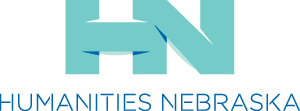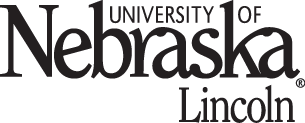 Sarah Chapman
Sarah Chapman
This is Sarah Chapman's interview of Mr. Ben Schneider. Okay, so before you entered the Army, were you enlisted or drafted?
Ben SchneiderI was enlisted.
Sarah ChapmanOkay. And how old were you when you entered?
Ben SchneiderI enlisted in 43. I was 23 years old.
Sarah ChapmanAnd did you have any schooling when you entered, before you entered?
Ben SchneiderSchooling before I entered. I went to grade school and high school. Okay, yeah. I graduated Omaha Technical High School in 1938. Before that, I graduated from Dundee Elementary School in Omaha, 1934. I graduated there in 34.
Sarah ChapmanOkay. So when did you move to Council Bluffs?
Ben SchneiderPardon?
Sarah ChapmanWhen did you move to Council Bluffs?
Ben SchneiderI moved to Council Bluffs after the war.
Sarah ChapmanOh, okay. Why did you choose to enter the Army?
Ben SchneiderPardon?
Sarah ChapmanWhy did you choose to enter the Army?
Ben SchneiderWhy did I choose to enter the Army? Mm-hmm. Uh...
Sarah ChapmanIt's okay if you can't answer.
Ben SchneiderI mean, I was going to be drafted anyway.
Sarah ChapmanOkay.
Ben SchneiderAnd I wanted to enter before I was drafted to choose... Okay. communication.... That's what I wanted to do. And not only that, I was Jewish, and I was very, very distraught at what the Germans were doing to the Jews. Okay. And I wanted to go over there and fight them.
Sarah ChapmanYeah, true. Okay. Um... What were some of your hobbies before you entered the war?
Ben SchneiderMy hobbies before I entered the war? I was an athlete.I did all kinds of athletic activity. Football, basketball, baseball. My other day, school and... Okay. Grade school and high school.
Sarah ChapmanOkay. Um... So your first days in the service, were you nervous or excited?
Ben SchneiderWhen I was going in, uh... I don't remember.
Sarah ChapmanThat's fine. You don't know? Okay.
Ben SchneiderI would say I was... I wasn't nervous because I enlisted, you know. Yeah. But I was excited because I wanted to go real bad. Okay. Because of what I said.
Sarah ChapmanOkay. Um... What were some of your first experiences in the Army?
Ben SchneiderUm... What was my first experience in the Army?
Sarah ChapmanUh... Your training or... Your training or things like that? Yeah.
Ben SchneiderBasic training was experience. Okay. And then I went to communication school. Okay. At Camp Crowder, Missouri. That's where I was. Camp Crowder, Missouri. Neosho, Missouri. Okay.
Sarah ChapmanOh, that's where that picture was taken. Okay. And what was it in Camp Crowder your training was? Camp... what was it? Camp Crowder?
Ben SchneiderYeah, Camp Crowder.
Sarah ChapmanOkay. C-R-O-W-D-E-R.
Ben SchneiderYou got it.
Sarah ChapmanOkay. Where were some of the places that you served? Okay. Oh, you have it written down, right?
Ben SchneiderHere. I know it off the bat. I'm just going to let you see it. Okay. I'll open it. I start here, Camp Crowder, Missouri. Okay. North Africa. I was in Oran, Okay. That's a big city there. I was in Naples, Italy. Italy. I was in many cities in southern France, up to Paris. I was in many cities in Bavaria, Germany. See, that's a southern part of Germany. Okay. And then I don't remember the actual place. I was in Austria, but it was a ski resort.
Sarah ChapmanOh, okay.
Ben SchneiderIn Austria. Okay.
Sarah ChapmanOkay, what were some of your assignments? What were some of your assignments? What's the name of them? No, what were some of them? Assignments?
Ben SchneiderWe were a... This is interesting. We were 18 soldiers in the 5th Signal Center team of the 7th Army. Our mission was to do communications between the 7th Army and the French 1st Army all the way from France into Germany and Austria.
Sarah ChapmanSo the 7th Army is just what your team was called?
Ben SchneiderNo, no. My team was called the 5th Signal Center team.
Sarah ChapmanOh, okay. So what was the 7th Army?
Ben SchneiderThe 7th Army was an army of the American task force there. We had the 1st Army, the 3rd Army, and the 7th Army. Oh. We went all the way.
Sarah ChapmanOne of the armies that beat Germany? Oh, okay. Okay. So did you actually see or experience combat?
Ben SchneiderI wasn't in the front line, but I was right behind it.
Sarah ChapmanOh, okay.
Ben SchneiderAnd I did experience some artillery and air action. I mean, they were shooting it up. Okay. Not a lot. Okay. Not like a combat soldier.
Sarah ChapmanOkay. So your job was really more communications more than combat?
Ben SchneiderYeah, we were communicating. Okay. Well, we were in a combat area communicating to the French Army. Okay. In other words, and I was a radio operator. Oh. I was the sergeant in charge of the radio. So this was an outfit on wheels. I had my own radio truck, and that was a truck for message center. There was a truck for teletyping. It was all in a truck, in trucks. We went from one place to the other. We never stayed anywhere. We went, we were assigned to communicate with this French Army. That's what our mission was.
Sarah ChapmanOh, okay. Okay. So what did you do to keep in touch with the people back home? Were you married before you left the United States?
Ben SchneiderWell, I was married while I was in the Army. I was married in May 30, 1943, right after I got out of basic training at Camp Crowder. And my wife came to Neosho and Joplin [gap] a year off campus while I was training in being a radio operator and other communications. From there, we were assigned to the Fifth Center. I wasn't in the Fifth Center team in Crowder.
Sarah ChapmanThat's where you assigned?
Ben SchneiderI was assigned to it.
Sarah ChapmanOkay.
Ben SchneiderIn 1943.
Sarah ChapmanOkay.
Ben SchneiderWhen we went overseas.
Sarah ChapmanOkay. What did you guys do for recreation while you were overseas?
Ben SchneiderWe didn't have any. We didn't have any. Well, we did a little, very little recreation. The only recreation you might say is off-duty. We walked around the towns we were in and looked at all the cultural things in Europe.
Sarah ChapmanSo sightseeing and things like that?
Ben SchneiderSightseeing, yeah. But that's all we had. We were too busy. We were running all the time.
Sarah ChapmanNow, as a Jewish veteran, did you ever experience any anti-Semitism?
Ben SchneiderYes, I did.
Sarah ChapmanYou did? What were some of those experiences?
Ben SchneiderI had an experience with one of the sergeants of my crew. One out of eighteen guys, we had about four or five anti-Semites. But the main one that I remember was Michael Burke, who told me many bad things about the Jewish people. But he didn't get away with it. I told him off. But I hated him ever since then. I went all the way through the war with him. And then when I ran into several soldiers, not in my outfit, that gave me a hard time about being a Jew.
Sarah ChapmanWere they American soldiers?
Ben SchneiderPardon?
Sarah ChapmanAmerican soldiers?
Ben SchneiderAmerican. This is all American. I didn't talk to anyone. I couldn't talk the language. I did talk Jewish to the Germans.
Sarah ChapmanOh, okay.
Ben SchneiderBut I didn't talk to them very much because I hated every one of them.
Sarah ChapmanYeah, I can see that. Okay, so how did you practice Judaism while in the army? How did you practice Judaism while in the army? Did you go to service?
Ben SchneiderI can't understand.
Sarah ChapmanHow did you practice Judaism?
Ben SchneiderOkay. I practiced Judaism because I was a Jew. I mean, I didn't have too many opportunities to go to synagogue because we weren't any place at one time. But I prayed to my God every night that I was there. Okay. And I never forgot that I was a Jew because I am a Jew. You know what I mean? Okay. I was Orthodox at one time.
Sarah ChapmanOh, really?
Ben SchneiderI went in and found it too Conservative.
Sarah ChapmanWhere do you guys go?
Ben SchneiderWe go to Bethel.
Sarah ChapmanOh, that's where I went.
Ben SchneiderOh, really?
Sarah ChapmanFor years.
Ben SchneiderOh, really?
Sarah ChapmanI'm still there.
Ben SchneiderYeah?
Sarah ChapmanHow did you celebrate high holidays?
Ben SchneiderHow did I?
Sarah ChapmanCelebrate high holidays?
Ben Schneider[shakes head]
Sarah ChapmanYou couldn't?
Ben SchneiderI did not celebrate high holidays. I had no way to do it except talking through my letters. I wished happy New Years to my family in my letters, but that's the only way I had. We were very, very busy.
Sarah ChapmanYeah, okay. So there really wasn't that much time for religion.
Ben SchneiderPardon?
Sarah ChapmanSo there really wasn't that much time for religion other than your own praying and things?
Ben SchneiderThere wasn't that much what?
Sarah ChapmanWas there any time for religion while you were there?
Ben SchneiderNo, there was no time for religion. Okay. Except to myself. And I prayed, yeah.
Sarah ChapmanOkay. Were there other Jewish soldiers serving with you?
Ben SchneiderYes, there was.
Sarah ChapmanDid you know any?
Ben SchneiderThere were five Jewish soldiers out of 18 people in this team that I was on. I became very close to two of them, which I'm still in contact with, except that my very, very dearest friend's dead.
Sarah ChapmanOh, okay. I'm sorry.
Ben SchneiderOh, okay. We're talking about 62 years.
Sarah ChapmanYeah, yeah. Did you keep kosher before the war?
Ben SchneiderPardon?
Sarah ChapmanDid you keep kosher for war?
Ben SchneiderNo. My family didn't keep kosher, and my wife and I don't keep kosher.
Sarah ChapmanDo you recall the day that you left the service?
Ben SchneiderI was discharged at Fort Collins, Colorado. That's near Colorado Springs.
Sarah ChapmanOh, okay.
Ben SchneiderAnd I spent many, many, many months in hospitals. I was sick a lot.
Sarah ChapmanOh, really?
Ben SchneiderAnd I was discharged from this hospital in Colorado Springs, and I went to, then I went to Fort Collins. I don't remember where the hospital was around here somewhere. And I went to Fort Collins and got officially discharged from there.
Sarah ChapmanOkay. Why were you discharged?
Ben SchneiderWhen?
Sarah ChapmanWhy were you? Was it the end of the war?
Ben SchneiderOh, yeah. Honorable discharge. Okay. Yeah, I was in it all the way. Okay. So you were in Fort Collins when the war ended? Well, I was in Fort Collins. Oh, okay. No, no. I was in Nancy, France.
Sarah ChapmanOh, okay.
Ben SchneiderWhen it ended. Nancy right? At a hospital, by the way.
Sarah ChapmanOh, okay. What were you sick with?
Ben SchneiderI had anemic dysentery, and then I had a perforated appendix. I almost died.
Sarah ChapmanOh, my gosh.
Ben SchneiderI was operated on in Nancy, France, and they saved me.
Sarah ChapmanOh, my gosh.
Ben SchneiderI was discharged from Nancy, France to Fort Collins. Wherever that was. But it was the end of the war. Okay. But Japan was still fighting us. I could have gone to Japan. Which a lot of my, my people did.
Sarah Chapman. But you didn't because you were sick.
Ben SchneiderYeah.
Sarah ChapmanOkay. So you said you formed many close, two close relationships?
Ben SchneiderI had two close.
Sarah ChapmanOkay.
Ben SchneiderDo you want to know their names?
Sarah ChapmanNo, that's okay.
Ben SchneiderLasting up until now, I still talk to this one guy's wife who calls me, New York. Oh. One was in New York, from New York, and one was from Denver, Colorado.
Sarah ChapmanOh, okay. How did the war change your everyday life after you got home?
Ben SchneiderI'm going to give you the answer to that. Okay. This question right here.
Sarah ChapmanOkay. So, all right. What was your career after the war?
Ben SchneiderWhat was my...
Sarah ChapmanYour career after the war?
Ben SchneiderAfter the war? My career was I was a plastering contractor, and then I did... After that, I worked for a very close friend of mine as a bartender in his bar. Okay. Very, very good experience. Okay. And then I went into my father-in-law's store in Council Bluffs as a partner. Okay. And he consequently died. Oh, okay. And my mother-in-law and I and my wife were partners in the store until 1965 when we bought her out. Okay. And then our store was taken out by a road in Council Bluffs for the new shopping center there downtown.
Sarah ChapmanOh, okay.
Ben SchneiderIn 197-, 1979... But we went out... We sold our store in 1978. Okay. And I retired after that. Okay. And use whatever you want.
Sarah ChapmanOkay.
Ben SchneiderI talked a lot of crap.
Sarah ChapmanNo, it's not. It's not. Did you have any kids?
Ben SchneiderHuh?
Sarah ChapmanDid you have any children?
Ben SchneiderYes, I did. I had three lovely daughters.
Sarah ChapmanOkay. And they were born when you got home from the Army?
Ben SchneiderThey were born after I got home, yeah.
Sarah ChapmanOkay. Okay. So the last question is, overall, what was your most memorable experience?
Ben SchneiderYou're getting me emotional.
Sarah ChapmanOh, okay.
Ben SchneiderI shouldn't, but I am.
Sarah ChapmanNo, don't worry.
Ben SchneiderWell, we were on the road to Austria. Well, we camped in a town called Starnberg on the Z-E-E. Starnberg on the Sea in Germany. So we went all from Germany up to Austria, but the war was over.
Sarah ChapmanOh, okay.
Ben SchneiderAnd we were, a friend of mine, the one I really loved, and I, were walking in that town of Starnberg, might have been on patrol, I don't remember. And suddenly, on a rise in the road, we saw 15, at least 15 refugees from Dachau. And they ran over to us and said, America, thank you, America. I don't know who said it. One of them did. I don't know. They couldn't talk, but we took care of them for two or three days. They were part of a camp right there in Starnberg, a refugee camp. America took the Jews and put them in his camp, took them out of it. And that was a tremendous thing.
Sarah ChapmanYeah, I can imagine.
Ben SchneiderAnd I said to myself, there by the grace of God goes I. We could have happened to us if we weren't in America because they took six million Jews. You know all about it, I don't have to tell you. When I came back home, I vowed that I was going to work for the Jewish people so it wouldn't happen here. And I did. I became a very active person at B'nai Brith. Okay. And I worked for 18 years with B'nai, boy, more than that. I was 35 years with B'nai Brith and I was very active in my synagogue in Council Bluffs.
Sarah ChapmanThat's really amazing.
Ben SchneiderHuh?
Sarah ChapmanThat's really amazing.
Ben SchneiderI still can't get over it. And that's why. Here's, wasn't there I said something about.
Sarah ChapmanAfter the war, what was your career after the war?
Ben SchneiderWell, my career was, I told you that. But that, I don't know, that was the main thing that I lived for. Okay. Jews. Okay. Here in America, America, you know. It was a very, very terrible experience.
Sarah ChapmanYeah. Yeah, I can imagine that. Okay.
Ben SchneiderI don't know why I'm crying. I've told that story 50 times.
Sarah ChapmanNo, no. No, I would be crying too.
Ben SchneiderA little note, too, for the day. And I wanted to hear, I had to get your name.
Sarah ChapmanOh, okay. I'm Sarah Chapman.







